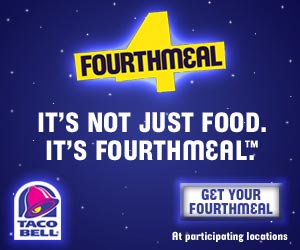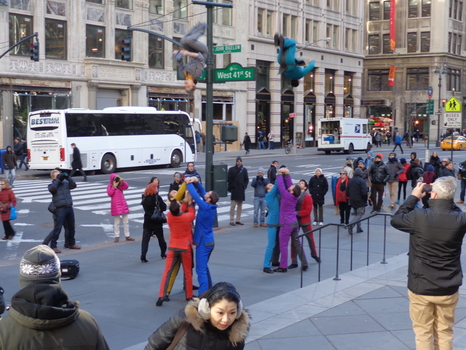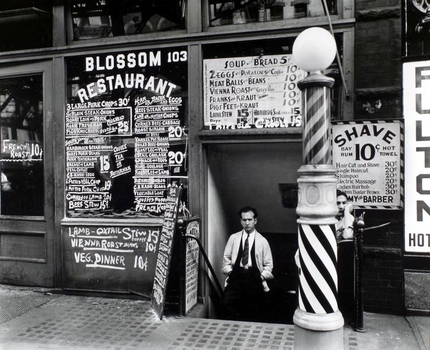…that He might make you know that man does not live by bread alone…
—Deuteronomy 8:3
Last week, I addressed Bloomberg’s proposed soda ban. After stewing on the issue for the past several days, I realized I had even more to say…
There are many compelling reasons for the government to try to get people to eat better. According to a recent Lehigh University study, obesity-related illnesses cost the United States approximately $190 billion per year, twenty percent of the nation’s total medical spending. In other words, 4% of the GDP is used to treat obesity. If politicians want to cut spending and create a balanced budget, encouraging Americans to eat healthier is a good way to start.
The American Medical Association estimates that 46% of our sugar intake comes from soft drinks, so Bloomberg’s soda ban proposal makes sense. Many people, however, feel that the government is overstepping its boundaries when it tries to tell us what to eat and drink, and Coca-Cola went as far as saying that Mayor Bloomberg’s plan was an insult to New Yorkers. The bottom line is that Bloomberg’s proposal does infringe on our civil liberties, and the government should not control our personal choices. Adult individuals need to take responsibility for their own actions—it’s not the government’s job to babysit us and to make sure that we eat the right things.
 There is another aspect of the debate, however, which has not been addressed: Why is it that the average American is eating so much more? According to the Center for Disease Control, the average restaurant hamburger in the 1950s was 3.9 oz. Today the average is more than three times that. French fries servings used to be 2.4 oz; today they are 6.7 oz. And of course, super-sized soft drinks didn’t even exist decades ago. Studies have shown that looking at meals on TV makes people hungry, and the food industry spends billions of dollars each year trying to get us to spend more on their products. There is the Taco Bell “Fourth Meal” campaign; McDonald’s promoting super-sized, three-thousand-calorie lunches; and Pepsi trying to quench our thirst with sodas that contain sixteen packets-worth of sugar. The fact is that if Pepsi did not air that commercial, you might have reached for water instead.
There is another aspect of the debate, however, which has not been addressed: Why is it that the average American is eating so much more? According to the Center for Disease Control, the average restaurant hamburger in the 1950s was 3.9 oz. Today the average is more than three times that. French fries servings used to be 2.4 oz; today they are 6.7 oz. And of course, super-sized soft drinks didn’t even exist decades ago. Studies have shown that looking at meals on TV makes people hungry, and the food industry spends billions of dollars each year trying to get us to spend more on their products. There is the Taco Bell “Fourth Meal” campaign; McDonald’s promoting super-sized, three-thousand-calorie lunches; and Pepsi trying to quench our thirst with sodas that contain sixteen packets-worth of sugar. The fact is that if Pepsi did not air that commercial, you might have reached for water instead.
Bloomberg should not be trying to restrict our eating or drinking. If somebody wants to eat a fried cheeseburger with two donuts as a bun, that’s their own business. When big business, though, invests billions of dollars in manipulating us into eating more of the wrong sorts of foods, perhaps then it’s time for the government to set some advertising regulations. After all, one of the largest advertisers of the 1950s was cigarette companies, but the government put an end to televised cigarette ads because of proven health risks. Today’s food giants are acting as immorally as the tobacco industry was.
So let me finish with a question: Why is it that cigarettes are taxed, gambling is regulated, prostitution is illegal, and drug peddlers are jailed, but food pushers and soda dealers are allowed to do whatever they want?











Justin Hullinger
I’ve been split on this issue since I heard about it and I couldn’t agree more with your response. We’re not really getting to the root of the issue when we just address the symptom. People become what they surround themselves with and when they are bombarded by advertizing that tells them such eating and drinking habits are alright they gradually accept it. By going after the advertizing we affect the cause of the problem and still retain our freedom to choose.